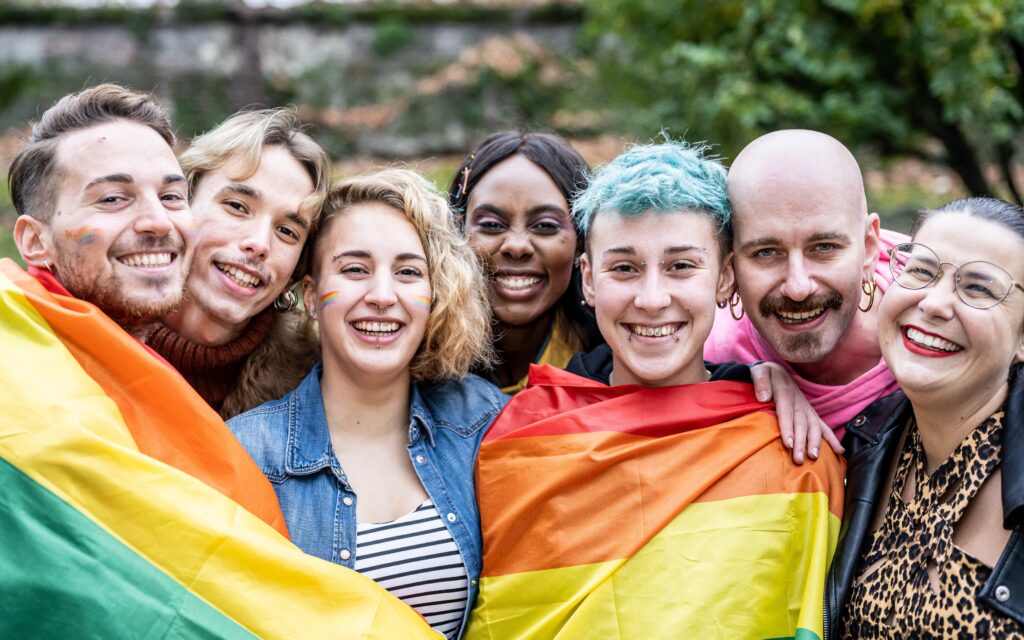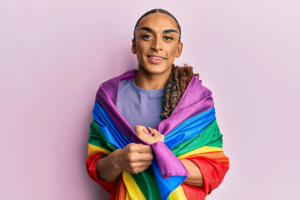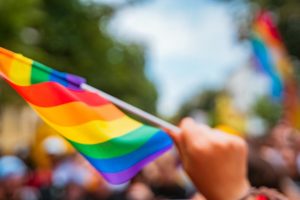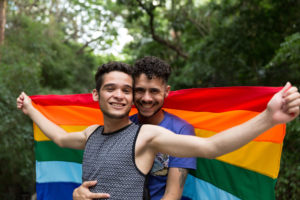June is Pride Month in the United States. Throughout the month, the LGBTQ community celebrates their identities, supports each other, and advocates for equal rights.
Despite significant progress, full acceptance and equality remain distant goals. Our community still faces social isolation, harassment, and discrimination, with recent laws like Florida’s “Don’t Say Gay” bill only making matters worse.
This discrimination contributes to higher rates of mental health issues among LGBTQ individuals. They are more than twice as likely as heterosexual individuals to experience a mental health disorder in their lifetime.
Given these challenges, celebrating Pride becomes even more important for LGBTQ mental health. It’s a beacon of hope, a rallying cry for resilience, and a reminder of the importance of community support.
Let’s explore how Pride contributes to our community’s mental well-being.
La Fuente is a national leader in LGBTQ-affirmative substance use treatment. Call us at 888.903.9898 to learn more.
Self-acceptance and releasing shame
For too long, members of the LGBTQ+ community have been told their identities are flawed and unacceptable. As an example, the World Health Organization (WHO) only removed homosexuality from its list of mental disorders in 1990. Today, 64 countries still criminalize private, consensual same-sex sexual activity.
These pervasive negative messages instill deep-seated shame, making people feel unworthy or inferior simply because of their sexual orientation or gender identity.
While there’s still progress to be made, Pride offers an opportunity to experience an accepting atmosphere filled with people who share similar experiences and diverse identities.
Although a single day or weekend can’t foster immediate self-acceptance, Pride acts as a powerful catalyst by providing a space where societal norms and expectations are set aside. During celebrations, people can break free from internalized shame, embrace their true selves, and affirm their worth and dignity.
Representation
In a heteronormative and cisnormative society, LGBTQ people often grow up without seeing themselves reflected in media, politics, or even their own communities. This lack of representation can lead to feelings of isolation and invisibility, making it difficult to envision a successful future.
Conversely, seeing members of the LGBTQ community succeed validates our identities and aspirations. Witnessing someone like us achieve their goals can inspire us to pursue our goals in school, at work, or at home.
Pride plays a crucial role in enhancing representation. During Pride events, we celebrate the visibility of LGBTQ individuals and their contributions to society. This public visibility combats the erasure of LGBTQ experiences and underscores that our identities are a vital part of society.
Combat discrimination and stigma
Pride parades and festivals celebrate the diversity and richness of the LGBTQ community, helping to dismantle harmful stereotypes and promote a deeper understanding of LGBTQ lives.
The large, supportive, and diverse crowds at these events convey that LGBTQ individuals are an integral part of society. And the collective celebration affirms that LGBTQ identities are something to be proud of, not hidden or ashamed of.
Furthermore, the educational components of Pride, such as panels and workshops, provide valuable insights into the experiences and challenges LGBTQ people face. By addressing topics like LGBTQ history, rights, and mental health, these sessions foster empathy and help counteract bigotry.
Create community connection
Loneliness takes a heavy toll on mental health and well-being. That’s especially true for LGBTQ people, who often face additional societal stigma and rejection that their straight counterparts don’t. With its many events, marches, and festivals, Pride is a vital antidote to this isolation.
In addition to visibility, these gatherings also serve as safe havens for LGBTQ people to connect with others who understand them.
This sense of belonging helps create meaningful connections that strengthen the community. It may even offer mental health benefits. Indeed, a 2019 study showed that LGBTQ individuals who felt more connected to their community were less likely to report suicidal behavior.
Celebrate LGBTQ achievements
From groundbreaking advancements in civil rights, such as the legalization of same-sex marriage in 36 countries, to cultural contributions by authors like James Baldwin and Audre Lorde, the LGBTQ community has made significant strides despite facing systemic barriers.
Pride is an opportunity to celebrate these achievements.
Acknowledging these milestones not only honors the resilience and determination of LGBTQ people but also contributes to improved mental health within the community.
By highlighting the progress our community has made and affirming the value of LGBTQ identities, Pride fosters a sense of empowerment, bolstering mental well-being against the challenges of discrimination and stigma that many still face.
Give back to the community
Research shows that volunteering benefits the recipients of our service and our own mental well-being. Engaging in acts of service stimulates our minds, provides a sense of purpose, and fosters feelings of gratitude and fulfillment.
The same is true when it comes to Pride.
Whether participating in a march, organizing a community meet-up, or donating to an LGBTQ cause, chances are high that you’ll come away with a boost in your mental well-being.
Volunteering during Pride fosters a sense of connection and belonging within the LGBTQ community, combats feelings of isolation, and boosts self-esteem by allowing people to see the tangible difference they’re making in their community.
Connect with allies
The presence of allies at Pride, whether friends, family, coworkers, or even strangers, is a powerful display of support and fosters an atmosphere of inclusivity.
But connecting with allies during Pride goes beyond merely attending the same event. Rather, it’s an opportunity to build meaningful connections rooted in mutual respect, understanding, and support. By sharing experiences and joining forces in activism, these relationships become the bedrock of our community, helping promote equality and acceptance in society at large.
They also serve as a source of support and validation that contributes to improved mental health among LGBTQ individuals.
Happy Pride From La Fuente Hollywood
Pride may only last a month, but La Fuente Hollywood Treatment Center’s support of the LGBTQ community is year-round.
Our commitment to helping LGBTQ people live happy, productive sober lives runs deep. We’re one of the few LGBTQ-only treatment centers in the United States and many of our staff members are part of the community. As such, we’re able to offer care and treatment specifically tailored to the unique needs of LGBTQ people.
To find out more, call us at 888.903.9898.




